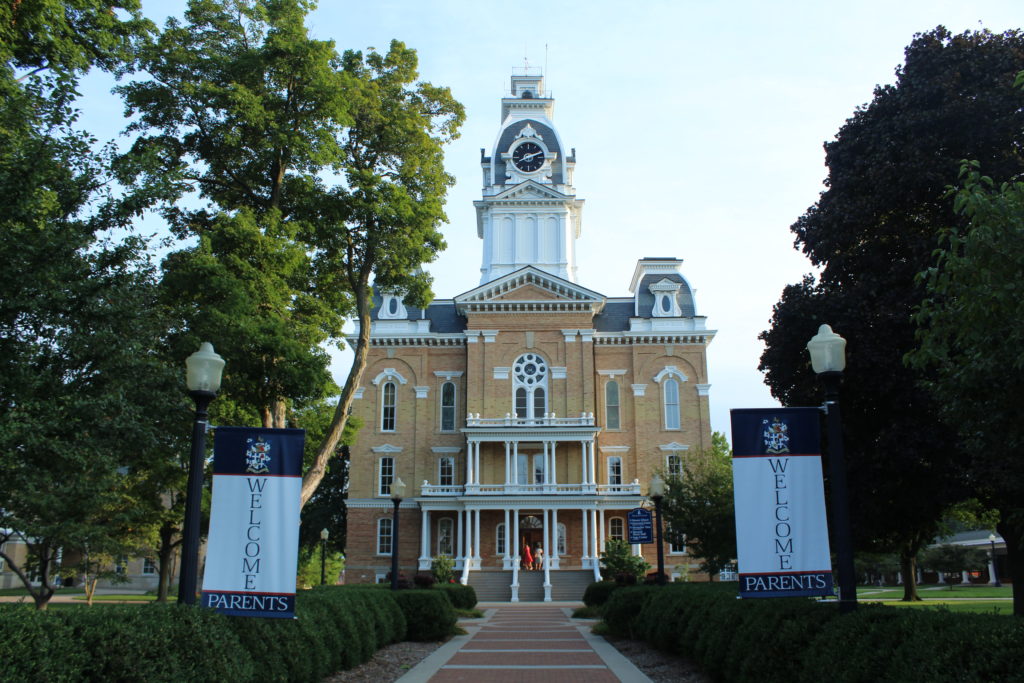
With gratitude for my opportunity to study at the greatest college in the country — when many schools did not return to campus this semester — a fire in my chest compels me to write this: the response at Hillsdale College to COVID-19 is neither faithful to her mission of defending liberty, nor reflective of her pursuit of the truth.
Although the virus has never been less dangerous to the residents of Hillsdale County, our college is still governed by excessive regulations which should horrify a self-governing people. Quarantining the healthy was never clearly part of the policy for our return to campus. If this college is indeed a partnership, transparent reasoning needs to accompany their quarantine decisions. Our vision is fatally myopic if it cannot detect the inherent dangers to liberty of tracking healthy citizens’ vital statistics and activities.
What principles guide our coronavirus response other than sustaining mere life at any cost? What precise benchmarks would bring an end to the indefinite protocols of masking and social isolation, quickly calcifying in the veins of our common culture? Is fear the main impetus for our decisions? Prudence is too often an excuse for cowardice and obedience is not always virtuous.
The limited gym opening is not a victory for liberty because it was only allowed by the will of Michigan Gov. Gretchen Whitmer. It should give us pause that our freedom-loving college has maintained nearly lockstep uniformity with the unconstitutional dictates of unelected bureaucrats at the Centers for Disease Control and Prevention. There is a painful disconnect between what our institution preaches and how we are acting.
More importantly, Hillsdale’s new coronavirus rules veer from the highest truth revealed in Jesus Christ. Our reaction to the virus has deviated from the path of Christian charity. The implicit lesson of social distancing and masking teaches that your neighbor is a deadly biological threat whom you should avoid. Does that contribute to a culture of charity?
Rather, reflection shows that our response is diametrically opposed to charity. Let us discern such things as Christ taught us in Matthew 7:16, judging them “by their fruits.”
Some fruits of our national surrender to fear are the precipitous rises in unemployment, abortion, domestic violence, depression, pornography use, and abandonment of faith. Americans are taking 34% more anxiety medication since the coronavirus lockdowns started, according to a recent study published by Newsweek. The director of the National Institute on Drug Abuse estimated that drug overdoses have increased by 30-40% since the outbreak began. U.S. Army suicides have increased by 30% among active duty members during the viral panic. One Texas hospital has admitted more than double the number of juvenile suicide patients compared to previous years. They treated almost one youth suicide attempt each day in August.
Is God glorified by these diabolical consequences? Is this the abundant life which Christ promises to us in John 10:10? If these are the effects of our societal response to the virus, what role might our own choices have played in worsening these outcomes? Can we honestly answer St. Paul that we are not “of the flesh, and behaving like ordinary men” (1 Corinthians 3:3)?
Good fruits certainly exist in the current crisis, but these verdant patches grow despite the repressive prescriptions of our civil leaders. Christians will always thrive in persecution because “in all things God works for the good of those who love him” (Romans 8:28). But in the joyless quest for safety against the “invisible enemy,” many have forgotten the true enemy who has threatened to divide mankind since our creation. Our wrestling “against principalities and powers” (Ephesians 6:12) is not a metaphor, but a true battle that rages against all men of goodwill.
This letter is an exhortation of love to my alma mater and current home. I cannot read hearts, nor will I judge the consciences of my respectable peers at the college. However, I will not remain silent when the spiritual well-being of my friends is endangered. Our response to the coronavirus is not true. It is not good. It is not beautiful. I adjure you, Hillsdale College, to stand up to the dragon which seeks to devour your sons and daughters, or we are not worthy of our claims to pursuing truth and defending liberty.
Salvo meliori iudicio,
Griffin McHaffie
Griffin McHaffie is a Ph.D. candidate in the Van Andel Graduate School of Statesmanship.

